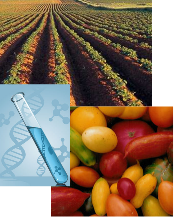Genetically Modified Foods (history, GMOs, Monsanto, corn)
- Details
- seraphim
- Health and Nutrition
- Hits: 6108
At the World Trade Organization, Canada has taken a position perceived by some to be in favor of genetically engineered foods. In a bid to tackle potential trade disputes and other export problems arising from widespread contamination of the greater food supply (including feed stocks) by unapproved GMO crops, Canada plans to allow as much as 1/10th of 1.0% contamination by unapproved GMO's (at present only a handful of GMO crops enjoy legal status in Canada among them corn and soybeans), with the exception of seeds. With the number of approved GMO crops worldwide increasing from 30 in 2009 to nearly 110 by 2015, Canada's proposition may be well received at the WTO.
Due to a lack of proper testing (no long term studies), the long term effects of GMO foods remain unclear and that has many health advocacy groups opposing Canada's position;
 Opposition groups are concerned that Canada has no plans to conduct any scientific studies on unapproved GMO's even though it will legalize trace amounts of them in the food supply. What studies have been done indicate that GM foods have the potential to adversely affect the immune system, leading to organ damage and even accelerated ageing. In many cases GMO splicing involves crossing species, making the science behind it somewhat murky. Someone with a severe allergy to a certain type of fish would develop a similar reaction after eating fruit containing proteins from that fish. Issues have also been raised regarding just what kind of effect all this engineering will have on the amount of diversity present within agriculture. Adding to the controversy is the opposition major companies such as PepsiCo and General Mills have to California's Proposition 37, a bill that would force companies to provide GMO information on their products.
Opposition groups are concerned that Canada has no plans to conduct any scientific studies on unapproved GMO's even though it will legalize trace amounts of them in the food supply. What studies have been done indicate that GM foods have the potential to adversely affect the immune system, leading to organ damage and even accelerated ageing. In many cases GMO splicing involves crossing species, making the science behind it somewhat murky. Someone with a severe allergy to a certain type of fish would develop a similar reaction after eating fruit containing proteins from that fish. Issues have also been raised regarding just what kind of effect all this engineering will have on the amount of diversity present within agriculture. Adding to the controversy is the opposition major companies such as PepsiCo and General Mills have to California's Proposition 37, a bill that would force companies to provide GMO information on their products.
The popularity of genetically modified crops may rise over the coming years after the drought in the US midwest cut this year's corn production by about 20%; This is because genetically modified crops incorporate key genetic material from varieties better able to withstand extreme climates, this allows them to produce higher yields. It should also be noted that the United States already leads the world in terms of the percentage of its agriculture area with GM crops (just over 16%) and some of its corn and soybean crop is already bioengineered (notable since neither stood up well against the recent drought).
Whatever your position is on GMO's one thing is clear, they have had a profound effect on science. Their uses are not limited to just agriculture, they are also used by the pharmaceutical industry as well as in medical research.
GM foods were initially introduced to the food supply during the mid 1990's; In 1995 Monsanto was the first company permitted by the Environmental Protection Agency and the FDA to market its own pesticide-producing potato plant (followed by corn, soybean and cotton). In 1987 Missouri-based Monsanto (NYSE:MON) became the first company to conduct field trials of modified crop. Although Monsanto is credited with making numerous invaluable contributions to scientific research (development of herbicides and pesticides, high yield crop seeds) the company's role has become controversial (in 2005 it acquired America's #3 cotton seed company at the same time Monsanto was the leading producer of GM seeds, also that year it acquired Seminis Inc making Monsanto the world's largest conventional seed producer; Nutrasweet, an important marketer of aspartame, was at one time a subsidiary of Monsanto).

